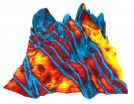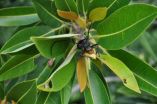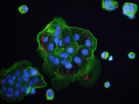(Press-News.org) NEW YORK (Jan. 24, 2013) -- A team of researchers led by Weill Cornell Medical College is calling into question the published statistics, methods and findings of a highly publicized research study that claimed bedside electroencephalography (EEG) identified evidence of awareness in three patients diagnosed to be in a vegetative state.
The new reanalysis study led by Weill Cornell neurologists Drs. Andrew Goldfine, Jonathan Victor, and Nicholas Schiff, published in the Jan. 26 issue of the journal Lancet, reports the statistical results and methodology used by a research team led by University of Western Ontario scientists and published online Nov. 9, 2011, also in the Lancet, was flawed in a number of crucial ways. Due to these errors, the reanalysis concludes it is impossible to determine whether or not these vegetative state study subjects demonstrated any degree of awareness during the testing.
The University of Western Ontario researchers in the original study set out to use bedside EEG technology to identify any changes in brain activity in vegetative patients and also healthy subjects as controls. During the study, each subject was asked to either imagine moving their hand or foot each time they heard an electronic beep. The brain activity following hand or foot commands was recorded using EEG and then compared in the study. The published study claimed that three of the 16 tested vegetative patients successfully performed the task, along with 9 of the 12 healthy controls. The reanalysis of this study is important, the Weill Cornell researchers say, because if the method was indeed valid, it would mark an important breakthrough in the field -- the first evidence using a bedside testing method that patients reported to be in a vegetative state could perform high-level cognitive tasks.
"Sadly, our reanalysis of the research team's original data shows these particular methods do not work, and it is important that scientists, physicians, and most importantly, the families of severely brain injured patients understand that the conclusions reached in the original study were most likely due to chance findings," says the corresponding author of the reanalysis, Dr. Schiff, the Jerold B. Katz Professor of Neurology and Neuroscience, professor of neuroscience in the Feil Family Brain and Mind Research Institute and professor of public health at Weill Cornell.
"We see the urgency and need every single day for tests that can be used to help establish awareness and consciousness in brain injured patients. However we won't help patients or their families by using a flawed research method and data that cannot accurately provide the information we are all hoping to find," says Dr. Schiff, who is also a neurologist at NewYork-Presbyterian Hospital/Weill Cornell Medical Center.
"The reanalysis points to the importance of the peer review process, data sharing and analytic tools to confirm research findings, especially those which are biologically complex and where misinterpretation could have major implications on clinical practice," says study co-author Dr. Joseph J. Fins, the E. William Davis Jr., MD Professor of Medical Ethics and chief of the Division of Medical Ethics at Weill Cornell, and director of medical ethics at NewYork-Presbyterian/Weill Cornell. "EEG techniques are an inexpensive and portable method of assessment, and a premature endorsement and dissemination of this technique could provide families with false hope about whether patients thought to be vegetative are in fact conscious," says Dr. Fins.
"Methods Have Consequences"
This reanalysis study by Weill Cornell and its colleagues from Burke Medical Research Institute and the University of Liège was made possible by a data-sharing agreement between their research group and the authors of the original study, Dr. Damian Cruse, Dr. Adrian Owen and colleagues from the University of Western Ontario. The Weill Cornell, University of Liege and the University of Western Ontario investigators are jointly supported by a multicenter research grant from the James S. McDonnell Foundation.
"We set out to validate the original Lancet study findings about EEG, not disprove them, because it is critically important that tests purporting to assert the presence of consciousness be carefully vetted by peer-review," says senior author Dr. Victor, the Fred Plum Professor of Neurology and professor of neuroscience in the Feil Family Brain and Mind Research Institute at Weill Cornell and a neurologist at NewYork-Presbyterian/Weill Cornell.
The reanalysis study doesn't criticize the use of bedside EEG technology for detection of consciousness, but questions the appropriateness of the statistical methodology applied to the data, Dr. Victor explained. The Weill Cornell research team's main finding was that the original study failed to take into account several aspects of EEG signals present in the vegetative patients who were said to show awareness--including the contamination of the EEG signals with muscle activity and the random characteristics of the EEG over extended periods of time, he says. Also, basic task-related EEG signals observed in the healthy subjects were not identifiable in any of the vegetative patients.
"The false-positive EEG brain activity responses in vegetative patients may have been reported because of flawed statistical methods, a problem that was exacerbated because a large number of statistical features were extracted from a small amount of data," says lead author Dr. Goldfine, assistant professor of neurology at the Burke Medical Research Institute, a neurologist at New York Presbyterian /Weill Cornell and Burke Rehabilitation Hospital. "Our reanalysis showed that because of the statistical assumptions and methodology used in the original study, random phenomena could be misinterpreted as a 'response'."
In addition to identifying flaws in the statistical approach used in the original study, the Weill Cornell research team also reanalyzed the original data with methodologies that take into account the presence of contamination of EEG data by muscle activity artifact, and the kind of randomness that EEG signals manifest over time. "But critically, the data from the vegetative subjects showed no changes indicative of consciousness or command following. Our analysis only revealed random fluctuations of brain activity," says Dr. Goldfine, who is also an assistant professor of neuroscience in the Feil Family Brain and Mind Research Institute at Weill Cornell.
"This reanalysis study shows methods have consequences," says Dr. Fins. "This is really difficult science, and we must do everything in our power to work together, to share our data and methods and peer review it, so that we can reach our goal of properly defining consciousness in severely brain injured patients."
### The study's other co-authors include: Jonathan Bardin, a neuroscience graduate student at Weill Cornell Graduate School of Medical Sciences, and Dr. Quentin Noirhomme of the Coma Science Group, Cyclotron Research Centre and Neurology Department at the University and University Hospital of Liège, in Liège, Belgium.
Weill Cornell Medical College
Weill Cornell Medical College, Cornell University's medical school located in New York City, is committed to excellence in research, teaching, patient care and the advancement of the art and science of medicine, locally, nationally and globally. Physicians and scientists of Weill Cornell Medical College are engaged in cutting-edge research from bench to bedside, aimed at unlocking mysteries of the human body in health and sickness and toward developing new treatments and prevention strategies. In its commitment to global health and education, Weill Cornell has a strong presence in places such as Qatar, Tanzania, Haiti, Brazil, Austria and Turkey. Through the historic Weill Cornell Medical College in Qatar, the Medical College is the first in the U.S. to offer its M.D. degree overseas. Weill Cornell is the birthplace of many medical advances -- including the development of the Pap test for cervical cancer, the synthesis of penicillin, the first successful embryo-biopsy pregnancy and birth in the U.S., the first clinical trial of gene therapy for Parkinson's disease, and most recently, the world's first successful use of deep brain stimulation to treat a minimally conscious brain-injured patient. Weill Cornell Medical College is affiliated with NewYork-Presbyterian Hospital, where its faculty provides comprehensive patient care at NewYork-Presbyterian Hospital/Weill Cornell Medical Center. The Medical College is also affiliated with the Methodist Hospital in Houston. For more information, visit weill.cornell.edu.
Science needs a second opinion: Researchers find flaws in study of patients in 'vegetative state'
Reanalysis finds errors in statistical findings and methods of previously published study in Lancet testing patient's awareness at bedside with portable EEG technolog
2013-01-25
ELSE PRESS RELEASES FROM THIS DATE:
Chameleon pulsar baffles astronomers
2013-01-25
Using a satellite X-ray telescope combined with terrestrial radio telescopes the pulsar was found to flip on a roughly half-hour timescale between two extreme states; one dominated by X-ray pulses, the other by a highly-organised pattern of radio pulses.
The research was led by Professor Wim Hermsen from The Netherlands Institute for Space Research and the University of Amsterdam and will appear in the journal Science on the 25th January 2013.
Researchers from Jodrell Bank Observatory, as well as institutions around the world, used simultaneous observations with the ...
Genetic landscape of common brain tumors holds key to personalized treatment
2013-01-25
Nearly the entire genetic landscape of the most common form of brain tumor can be explained by abnormalities in just five genes, an international team of researchers led by Yale School of Medicine scientists report online in the Jan. 24 edition of the journal Science. Knowledge of the genomic profile of the tumors and their location in the brain make it possible for the first time to develop personalized medical therapies for meningiomas, which currently are only managed surgically.
Meningioma tumors affect about 170,000 patients in the United States. They are usually ...
New Year brings (potentially) good news for conservation of species on Earth
2013-01-25
Claims that most species will go extinct before they can be discovered have been debunked in the latest issue of Science, by researchers from The University of Auckland, Griffith University, and the University of Oxford.
The scientists show that the claims are based on two key misconceptions: an over-estimation of how many species may exist on Earth, and the erroneous belief that the number of taxonomists (people who describe and identify species) is declining.
"Our findings are potentially good news for the conservation of global biodiversity," says lead author Associate ...
Organic ferroelectric molecule shows promise for memory chips, sensors
2013-01-25
At the heart of computing are tiny crystals that transmit and store digital information's ones and zeroes. Today these are hard and brittle materials. But cheap, flexible, nontoxic organic molecules may play a role in the future of hardware.
A team led by the University of Washington in Seattle and the Southeast University in China discovered a molecule that shows promise as an organic alternative to today's silicon-based semiconductors. The findings, published this week in the journal Science, display properties that make it well suited to a wide range of applications ...
HIV-like viruses in non-human primates have existed much longer than previously thought
2013-01-25
Viruses similar to those that cause AIDS in humans were present in non-human primates in Africa at least 5 million years ago and perhaps up to 12 million years ago, according to study published January 24 in the Open Access journal PLOS Pathogens by scientists at Fred Hutchinson Cancer Research Center. Until now, researchers have hypothesized that such viruses originated much more recently.
HIV-1, the virus responsible for AIDS, infiltrated the human population in the early 20th century following multiple transmissions of a similar chimpanzee virus known as SIVcpz. Previous ...
Bats split on family living
2013-01-25
For the tiny Daubenton's bat, the attractions of family life seem to vary more with altitude than with the allure of the opposite sex.
For more than a decade, a team led by Professor John Altringham from the University of Leeds' School of Biology has studied a population of several hundred bats along a 50-km stretch of the River Wharfe. They monitored roosts in Ilkley and Addingham, upstream in the market town of Grassington and higher still in the villages of Kettlewell and Buckden.
The researchers found that all Daubenton's bats in nursery roosts in lowland areas ...
Extinction rates not as bad as feared ... for now
2013-01-25
Concerns that many animals are becoming extinct, before scientists even have time to identify them, are greatly overstated according Griffith University researcher, Professor Nigel Stork.
Professor Stork has taken part in an international study, the findings of which have been detailed in "Can we name Earth's species before they go extinct?" published in the journal Science.
Deputy Head of the Griffith School of Environment, Professor Stork said a number of misconceptions have fuelled these fears, and there is no evidence that extinction rates are as high as some have ...
Organizing human specimen collections: Getting the best out of biobanks
2013-01-25
The diversity of biobanks, collections of human specimens from a variety of sources, raises questions about the best way to manage and govern them, finds a study published in BioMed Central's open access journal Genome Medicine. The research highlights difficulties in standardizing these collections and how to make these samples available for research.
Biobanks have been around for decades, storing hundreds of millions of human specimens. But there has been a dramatic increase in the number of biobanks in the last ten years, since the human genome sequencing project. ...
Immune cell suicide alarm helps destroy escaping bacteria
2013-01-25
CHAPEL HILL, N.C. – Cells in the immune system called macrophages normally engulf and kill intruding bacteria, holding them inside a membrane-bound bag called a vacuole, where they kill and digest them.
Some bacteria thwart this effort by ripping the bag open and then escaping into the macrophage's nutrient-rich cytosol compartment, where they divide and could eventually go on to invade other cells.
But research from the University of North Carolina School of Medicine shows that macrophages have a suicide alarm system, a signaling pathway to detect this escape into ...
Out-of-pocket costs for breast cancer probably manageable for most Canadian women
2013-01-25
Out-of-pocket costs resulting from breast cancer care in the year following diagnosis are likely manageable for most women, but some women are at a higher risk of experiencing the financial burden that comes from those costs in Canadian breast cancer patients, according to a study published January 24 in the Journal of the National Cancer Institute.
While extensive information about the level of out-of-pocket costs after early breast cancer diagnosis has been unavailable until now, the costs resulting from the disease and the effects the costs have on family financial ...
LAST 30 PRESS RELEASES:
GLP-1 drugs associated with reduced need for emergency care for migraine
New knowledge on heritability paves the way for better treatment of people with chronic inflammatory bowel disease
Under the Lens: Microbiologists Nicola Holden and Gil Domingue weigh in on the raw milk debate
Science reveals why you can’t resist a snack – even when you’re full
Kidney cancer study finds belzutifan plus pembrolizumab post-surgery helps patients at high risk for relapse stay cancer-free longer
Alkali cation effects in electrochemical carbon dioxide reduction
Test platforms for charging wireless cars now fit on a bench
$3 million NIH grant funds national study of Medicare Advantage’s benefit expansion into social supports
Amplified Sciences achieves CAP accreditation for cutting-edge diagnostic lab
Fred Hutch announces 12 recipients of the annual Harold M. Weintraub Graduate Student Award
Native forest litter helps rebuild soil life in post-mining landscapes
Mountain soils in arid regions may emit more greenhouse gas as climate shifts, new study finds
Pairing biochar with other soil amendments could unlock stronger gains in soil health
Why do we get a skip in our step when we’re happy? Thank dopamine
UC Irvine scientists uncover cellular mechanism behind muscle repair
Platform to map living brain noninvasively takes next big step
Stress-testing the Cascadia Subduction Zone reveals variability that could impact how earthquakes spread
We may be underestimating the true carbon cost of northern wildfires
Blood test predicts which bladder cancer patients may safely skip surgery
Kennesaw State's Vijay Anand honored as National Academy of Inventors Senior Member
Recovery from whaling reveals the role of age in Humpback reproduction
Can the canny tick help prevent disease like MS and cancer?
Newcomer children show lower rates of emergency department use for non‑urgent conditions, study finds
Cognitive and neuropsychiatric function in former American football players
From trash to climate tech: rubber gloves find new life as carbon capturers materials
A step towards needed treatments for hantaviruses in new molecular map
Boys are more motivated, while girls are more compassionate?
Study identifies opposing roles for IL6 and IL6R in long-term mortality
AI accurately spots medical disorder from privacy-conscious hand images
Transient Pauli blocking for broadband ultrafast optical switching
[Press-News.org] Science needs a second opinion: Researchers find flaws in study of patients in 'vegetative state'Reanalysis finds errors in statistical findings and methods of previously published study in Lancet testing patient's awareness at bedside with portable EEG technolog


